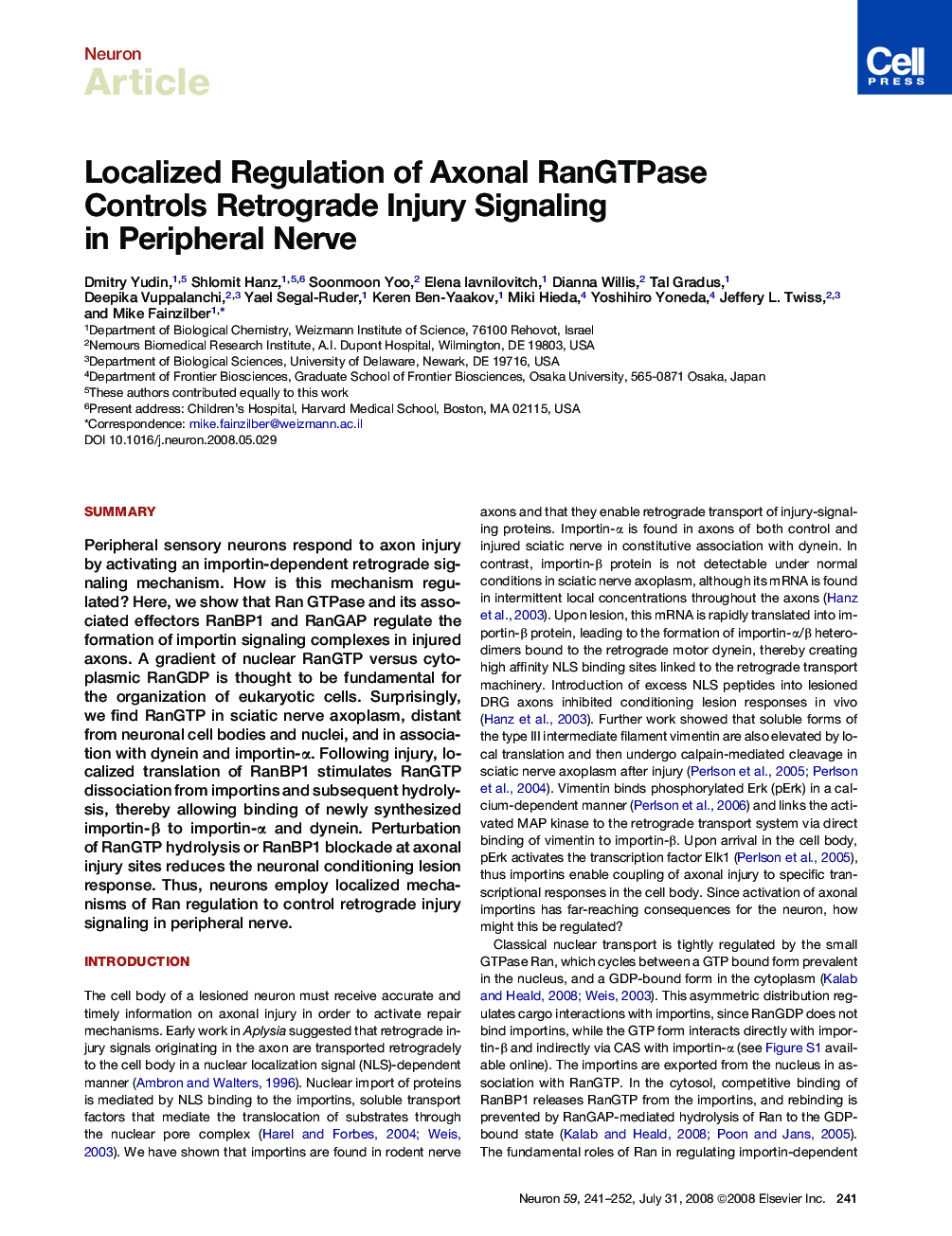| Article ID | Journal | Published Year | Pages | File Type |
|---|---|---|---|---|
| 4322204 | Neuron | 2008 | 12 Pages |
SummaryPeripheral sensory neurons respond to axon injury by activating an importin-dependent retrograde signaling mechanism. How is this mechanism regulated? Here, we show that Ran GTPase and its associated effectors RanBP1 and RanGAP regulate the formation of importin signaling complexes in injured axons. A gradient of nuclear RanGTP versus cytoplasmic RanGDP is thought to be fundamental for the organization of eukaryotic cells. Surprisingly, we find RanGTP in sciatic nerve axoplasm, distant from neuronal cell bodies and nuclei, and in association with dynein and importin-α. Following injury, localized translation of RanBP1 stimulates RanGTP dissociation from importins and subsequent hydrolysis, thereby allowing binding of newly synthesized importin-β to importin-α and dynein. Perturbation of RanGTP hydrolysis or RanBP1 blockade at axonal injury sites reduces the neuronal conditioning lesion response. Thus, neurons employ localized mechanisms of Ran regulation to control retrograde injury signaling in peripheral nerve.
